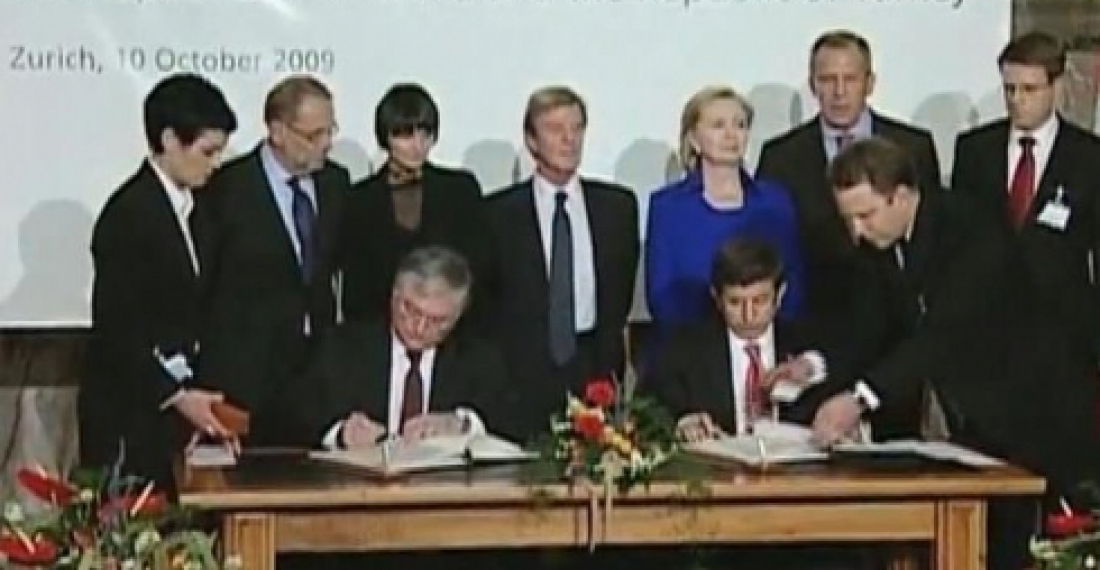The President of Armenia, Serzh Sargsyan, has formally withdrawn from the consideration of the country's parliament the protocols that his country had signed with Turkey in 2009, and which were meant to open a new chapter in the troubled relations between the two countries. The protocols were signed by the Foreign Ministers of Armenia and Turkey in Zurich on 10 October 2009 following long negotiations, mostly held in secret. After the signing it became clear that both sides came under intense pressure from different interest groups not to proceed with the raftification of the agreements that among other things provided for the establishment of diplomatic relations and the opening of borders. Azerbaijan, which had insisted that there should be no normalisation of Turkish relations with Armenia unless there was progress in the Karabakh conflict settlment process had also reacted sharply to the signing, threatening to downgrade its relations with Turkey. Turkey subsequently deferred the ratification of the protocols. In Armenia, and especially amongst Armenian communities in the diaspora the protocols were also negatively evaluated.
In his letter to the Chairman of the Armenian Parliament President Sargsyan said that in the six years since the protocols were signed, Armenia has always had a consistent position on the implementation of the protocols.
"However, we must admit the lack of political will of the Turkish authorities, the distortion of the letter and spirit of protocols and consistent denial. Parallel to this, on the eve of the 100th anniversary of the Armenian Genocide, denial policy and 'adjustment' of history gets a new dimension," the President said. The Armenian leader said he regretted that the Turkish authorities turned a deaf ear to Armenia's calls.
Commonspace.eu political editor said that "the move to withdraw the protocols from the consideration of the Armenian Parliament was a purely symbolic one. The protocols have long since been considered dead, at least in their present format. As Armenian prepares to mark the 100 th anniversary of the atoricities against Armenians in Anatolia in 1915, characterised as the Armenian Genocide, the withdrawal of the protocols is a further mark of Armenian displeasure. However the reasons why Armenia wanted to sign the protocols in the first place remain the same. The country faces serious economic challenges and the opening of the border with Turkey is considered an important part of addressing these challenges. Nothing much will happen in this centenial year but it is likely the two sides will maintain channels of communication open in order to re-visit the subject at a politically more convenient time."
source: commonspace.eu with agencies
photo: Signing of the Armenian-Turkish Protocols in Zurich on 10 October 2009. (archive picture).







